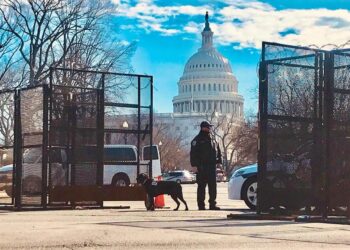Petitioners Raise Concerns Over NEET PG 2024’s Transparency, Lack of SOPs, and Information Memorandum

The Supreme Court of India has recently postponed the hearing on a petition that questions the transparency of the National Eligibility cum Entrance Test for Postgraduate (NEET PG) 2024. The petition, which raises multiple issues regarding the examination’s clarity and fairness, highlights critical gaps in the process, such as the absence of a detailed Information Memorandum, lack of standard operating procedures (SOPs), and widespread confusion in the counselling stages.
This postponement means that the concerns raised by candidates regarding transparency and procedural clarity in NEET PG 2024 remain unresolved. Here’s a closer look at the key issues raised in the petition, the Supreme Court’s response, and the possible implications of the ongoing case for medical aspirants across India.
The Petition: A Call for Transparency in NEET PG 2024
The petition, filed by Dr. Ishika Jain, an MBBS graduate, along with other concerned candidates, demands a more transparent and structured approach to conducting NEET PG 2024. NEET PG is the qualifying examination for postgraduate medical courses in India, and it is a critical step for students aspiring to specialise in various medical fields. However, the petitioners argue that the examination process has been plagued by a lack of transparency, with insufficient information provided to candidates regarding exam protocols, counselling procedures, and evaluation methods.
The petitioners’ primary concerns include:
- Absence of an Information Memorandum: The petition stresses the need for an official Information Memorandum, a document that would inform candidates of the rules, conduct, and guidelines of the exam in a clear and structured manner. This, they argue, is essential for maintaining fairness and helping candidates understand the specifics of the examination process.
- Lack of Standard Operating Procedures (SOPs): Without SOPs, the examination process lacks uniformity, which can lead to confusion and potential inconsistencies. The petition calls for the implementation of SOPs to ensure that the NEET PG 2024 is conducted fairly and transparently.
- Counselling Confusion: The petition highlights the uncertainty surrounding the counselling process, which has led to confusion among students, parents, and even states responsible for managing these stages. Petitioners claim that these ambiguities make it challenging for students to make informed decisions regarding their academic futures.
The petition also underscores the need for disclosure of answer keys following the exam. This measure, they argue, would allow candidates to cross-check their responses and ensure that the evaluation process is transparent and free of arbitrary decision-making.
SC’s Response and the Decision to Postpone
During the initial hearing, Justice JB Pardiwala, who presided over the matter, listened to the arguments presented by the petitioners’ legal representatives, advocates Vibha Makhija and Parul Shukla. Justice Pardiwala stated that the case would be rescheduled for a “Non-Miscellaneous Day,” a court day dedicated to handling specific legal matters in greater detail.
This decision to defer the case means that the Supreme Court will give the petition a dedicated, comprehensive hearing in the future. For now, however, the concerns surrounding NEET PG 2024 remain unresolved, leaving candidates in a state of uncertainty as they await the court’s further decision.

Key Issues Raised by the Petitioners
- Information Memorandum: The petition calls for a comprehensive Information Memorandum that would clarify the rules, regulations, and conduct of NEET PG 2024. Petitioners argue that the absence of such a memorandum has created a knowledge gap, leaving candidates uninformed about essential aspects of the exam and its procedures.
- SOPs for Exam and Counselling: Standard operating procedures are typically used to maintain consistency and fairness in official processes. The petition argues that NEET PG 2024 lacks clear SOPs, particularly regarding the counselling stages. Without these, candidates face ambiguity, potentially leading to missteps and confusion in the admission process.
- Lack of Clarity in Counselling Process: Petitioners highlighted that states themselves were unclear on the counselling procedures, which has only compounded the confusion. This lack of clarity can affect students’ decision-making abilities, as they may not fully understand the requirements and steps needed to secure a position in their desired postgraduate programme.
- Frequent Amendments to Information Bulletins: According to the petition, NEET PG 2024’s information bulletins have undergone last-minute changes that have caused confusion. Petitioners claim these amendments are often made based on the “whims and fancies” of the examination agencies, further creating distrust among candidates who expect a standardised and predictable process.
Implications for NEET PG Aspirants
The outcome of this case could have significant implications for the NEET PG 2024 exam and future medical entrance examinations. NEET PG is a high-stakes examination, and transparency and clarity are critical to maintaining trust in the process. Many students have dedicated years of preparation to this examination, and they are eager to see the concerns addressed and the process improved.
If the Supreme Court rules in favour of the petitioners, we may see the following changes:
- Enhanced Transparency: An official Information Memorandum and SOPs would provide candidates with a clearer understanding of the examination and counselling stages, reducing uncertainties and building trust.
- Post-Exam Answer Key Disclosure: Releasing answer keys after the exam could help candidates verify their responses, ensuring a fair evaluation process.
- Clear Guidelines for Counselling: Establishing standardised counselling procedures could help eliminate confusion, allowing candidates to make more informed decisions about their academic futures.
In the meantime, students and other stakeholders in the medical field are closely watching the case, hopeful that the Supreme Court’s eventual ruling will bring about greater transparency and fairness in NEET PG 2024.
Looking Ahead: The Importance of Transparency in Medical Examinations
As India’s medical field grows increasingly competitive, the need for a transparent and structured examination process is essential. NEET PG 2024 is a gateway for aspiring doctors who aim to specialise in various medical fields, and clarity and consistency in this process are crucial.
The lack of transparency in NEET PG 2024, as highlighted by the petition, reflects a broader need for reform within the medical examination system. From ensuring that candidates have access to comprehensive information to implementing uniform SOPs, transparency is the foundation of a fair examination process.
As this case unfolds, it is likely to spark discussions about how India’s medical entrance examinations can be improved. If successful, the petition could set a precedent, encouraging examination authorities to adopt practices that prioritise fairness, clarity, and accountability.

Awaiting Clarity on NEET PG 2024
The Supreme Court’s decision to defer the hearing on this petition means that candidates will need to wait for further updates. However, the issues raised in this case have already highlighted key areas where improvement is needed in NEET PG 2024.
For now, the petitioners and candidates alike are awaiting a resolution that will hopefully bring about the changes needed to create a more transparent and reliable NEET PG exam process. As we wait for the next hearing, the focus remains on the court’s potential role in ensuring that candidates have the information, structure, and support they need to pursue their medical aspirations fairly.











